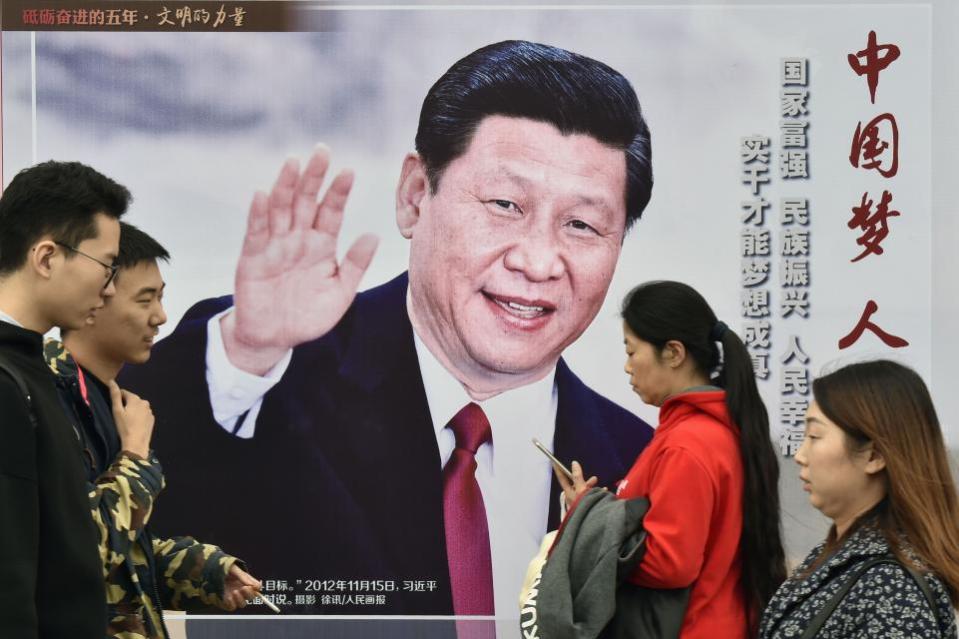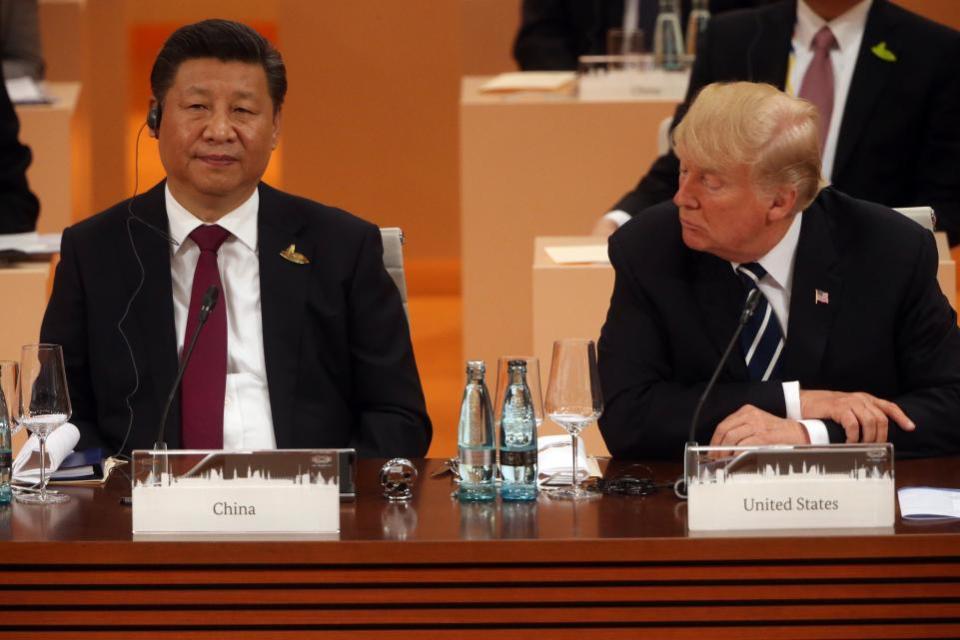No Longer Shamed, China Parades a Version of Democracy
It’s a pivotal moment for China. President Xi Jinping is expected to strengthen and expand his powers at the 19th National Congress of the Chinese Communist Party (CCP), which opens on Wednesday.
During the week-long event, which is held once every five years, Xi will eye changes to the constitution and a longer presidential term that could put him on a par with Mao Zedong for length of reign. His timing to make the case to strengthen one-party rule under one leader couldn’t be better.
Since 2012, under Xi’s rule, China has felt its economic influence grow while pressure from Western countries over a lack of respect for human rights and freedom has reduced.
Just over 20 years ago, then-First Lady Hillary Rodham Clinton publicly criticized China’s stance on women’s rights at an event in Beijing, saying it was no no longer acceptable to discuss these as separate from human rights. It’s hard to imagine a similar scene taking place today.
“[The Chinese government] is getting more confident,” Lokman Tsui, assistant professor at the School of Journalism and Communication in Hong Kong, tells Newsweek. “They say: ‘We are China, we too think freedom of speech is important but we also think social stability, development and sovereignty are important values.’”
Nowhere was this message spelled out more clearly than in an editorial published by the state-controlled news agency Xinhua Tuesday, titled “Enlightened Chinese democracy puts the West in the shade" that praised China’s example of stable rule in the face of the “chaos swamping” Western liberal democracies.
“Under the leadership of a sober-minded, forward-looking CCP, Chinese-style democracy has never been healthier and China has absolutely no need to import the failing party political systems of other countries,” the editorial read.

Xinhua criticized Western democracies for their "political backbiting, bickering and policy reversals" and hailed instead the example of “cooperation” between the CCP and non-Communist parties. In fact, the Communist party has a monopoly on political power that it uses to keep a tight grip on civil and political rights, as recorded by the U.S.-based, government-funded, non-governmental organization Freedom House.
The party's grip tightened ahead of the congress, to ensure lack of political mobilization of any kind, on the streets—where an additional number of police officers and volunteers were deployed to maintain public order, as reported in Chinese media—and online.
“Mobilization and protest is what they are afraid of,” Tsui says. “But a lot of regulation and censorship is not to prevent protest but it's image management, not losing face, not looking bad. That explains the other things that they do,” he adds.
In recent weeks, Whatsapp users have experience disruption or blocking of the service, Winnie the Pooh fans are no longer allowed to share images of the bear (the cartoon has been used to mock President Xi) and new regulations on VPN will make it harder for citizens to bypass the so-called great firewall of China.
“Regulation, control, censorship and surveillance of the internet has increased, even by Chinese standards, considering how internet censorship was already severe and tightly regulated,” Tsui says.
According to him, the crackdown on communications during Xi’s presidency was also possible thanks to scandals in the U.S., such as the unveiling of the NSA surveillance operations, that have tainted American moral arguments for human rights.
“The moral leadership of the U.S. government when it comes to internet freedom has disappeared and that has only gotten worse with Trump, whose administration keeps giving Beijing talking points,” Tsui says.

Due to the government control of the public sphere, it is hard to discern what Chinese people think about their leadership and whether increased limits on internet freedom could spur any significant opposition.
One journalist working for a Beijing-based media group told Newsweek—asking not to be identified for fear of repercussions—that the issue of internet freedom seem to only be relevant to specific parts of the population, such as reporters and researchers, as for the main population the services offered within the government-controlled internet sphere are enough.
According to the journalist, it makes little sense to discuss whether the CCP is “winning” the war on internet freedom. “There is no significant fight, at least around me,” the source said.
Tsui too doubts the presence of significant rebelliousness among the population. According to him, those who have benefited economically from Xi’s leadership but cwho may suffer from the limited freedoms can always “vote with their feet,” making use of their passports and foreign assets to leave the country should the situation become harder to bear.
“This is not a country dying to be liberated from the party. They feel the party is making China stronger, it's standing up to the West,” Tsui says.
In one way at least, the Chinese and the American leaderships share a similar goal. Trump was elected on the promise to “make America great again” and Xi has similarly evoked nationalism to "make China great again.” This week’s cover of The Economist magazine crowning Xi “the world’s most powerful man” shows he has certainly succeeded in making China a global player.
Related Articles


